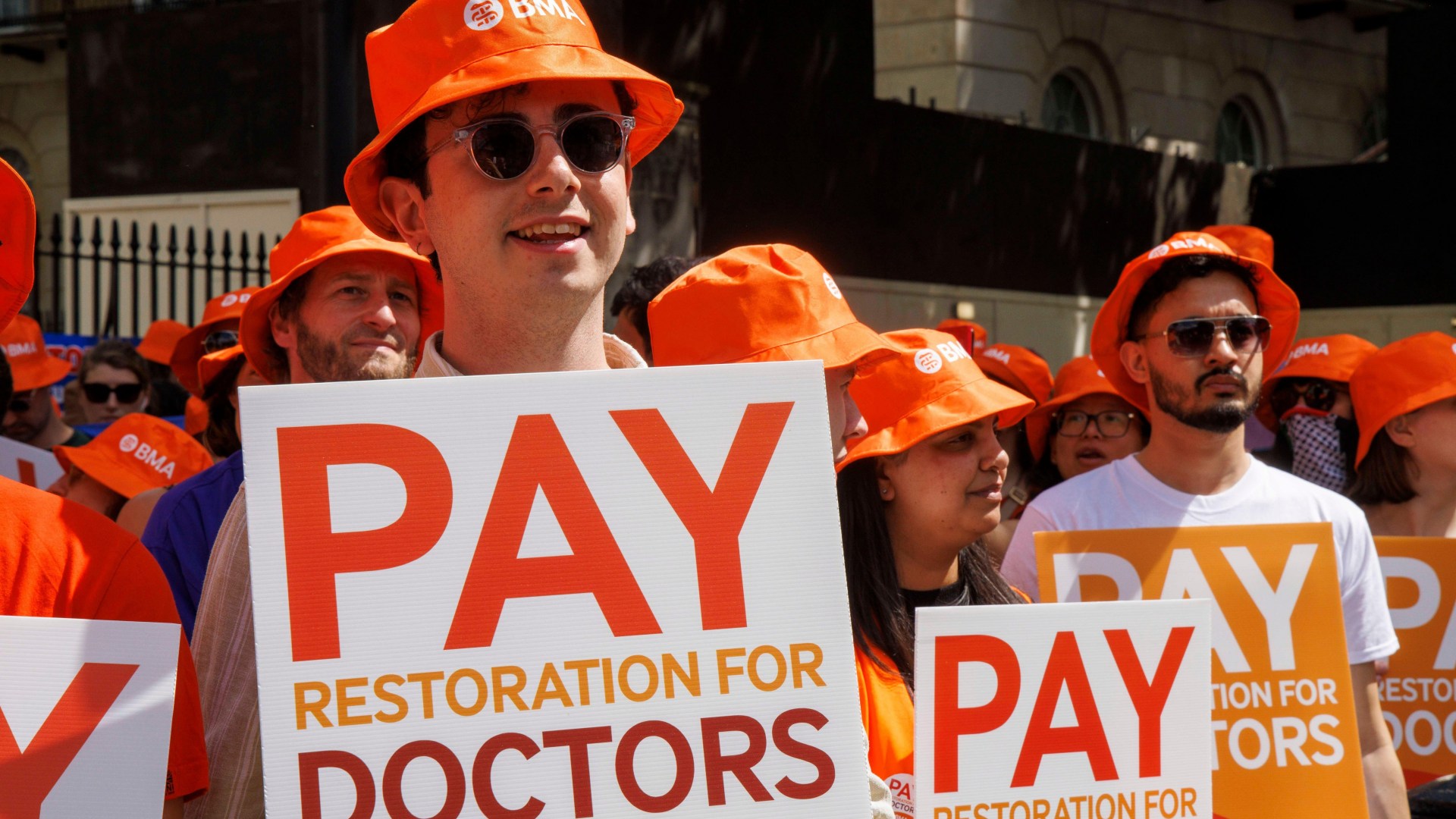GRASPING union bosses have demanded trainee doctors stop being called “junior” as they threatened to strike again unless they get more pay rises.
Leaders at the British Medical Association issued more demands after bagging an eye-watering 22 per cent pay rise from Labour to end strikes on Monday.
2
They now want junior doctors called “resident doctors”, calling the current term “demeaning” and insisting the change “will better reflect their expertise”.
They have called the salary deal – worth £7,000 to £12,000 per year – “modest” and said it is a mere “first step towards our goal” of full pay restoration.
It comes after 18 months of strikes that crippled the NHS, with more than 1.5million appointments cancelled and little to no progress on waiting lists.
We expect pay uplifts every year
Dr Vivek Trivedi

2
Co-chair of the junior doctors’ committee, Dr Vivek Trivedi, told the BBC: “We will expect pay uplifts each and every year, as we have done in the past.
Read more on the NHS crisis
“If those pay uplifts don’t occur in a timely fashion we’ll be going to the government.
“And if those communications break down, then we will be thinking about going back into dispute and striking again, but that’s always a last resort and something we don’t want to have to do.”
Sir Keir Starmer has insisted the pay settlement does not mean he will cave to future demands and he has promised to be “tough” with unions.
But ministers have bowed to the name change and agreed to call the medics resident doctors in official files.
BMA members voted on the change last year.
Junior, or resident, doctors have full medical degrees and work while doing on-the-job or specialist training that usually lasts five to eight years.
Dr Trivedi and co-chair Dr Robert Laurenson said: “There was never anything ‘junior’ about the work we do.
“The title ‘junior doctor’ misled patients into thinking that they were being looked after by underqualified or apprentice doctors.
“In fact we are expert clinicians who are responsible for a huge bulk of the medical care given to patients across the NHS every day.
“The language we use matters as well as pay, and this name change is a simple and straightforward way of marking a new era where resident doctors no longer accept less than they are worth.”
Tories say Labour gave in to union
The Tories warned Labour had “set the precedent that strikes will be rewarded with bumper pay rises”.
Ex-Labour minister Chris Mullin said: “This is what comes of appeasing BMA extremists.”
Former health secretary and Tory MP Victoria Atkins said: “I am pleased for the sake of patients that junior doctors have finally accepted a deal.
“However, the threats to continue striking show the price that this Labour government has paid: an inflation-busting pay rise with no requirement for improving productivity, increasing value for taxpayers or even future-proofing against more strikes.
“Labour has set the precedent that they will reward strikes with bumper pay rises.”
WHAT IS THE JUNIOR DOCTORS’ PAY DEAL?
JUNIOR doctors in the British Medical Association in September voted to accept Labour’s pay offer in a bid to end 18 months of industrial action.
The deal is a combination of backdated and current pay rises, plus an added £1,000 across the board, and is worth an average 22 per cent.
It increases a junior doctor’s starting salary from £29,384 to £36,616.
Pay in the final years of training – usually reached after four or five years – will rise to £70,425, up from £58,398 under the previous contract – a £12,000 uplift.
It is salary increase of between 21 and 25 per cent spread across two years, with the exact amount dependent on an individual’s career stage.
They will receive between £7,000 and £12,000 more each year under the deal.
The BMA said it does not fully restore pay to what it would have been had they had increases in line with inflation every year since 2008. The union is expected to demand more money in the coming years.




